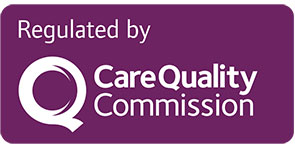Suffering from poor digestion can be a miserable experience. Symptoms of bloating, diarrhoea, constipation or gas can make life very uncomfortable. However, a few simple adjustments to your diet and lifestyle can help get your digestion back in good shape:
1. Chew Well
For healthy digestion, your food needs to be broken down both physically and chemically. Chewing well helps to mechanically break down food and release digestive enzymes in our saliva. However, many people bolt their food and completely bypass this vital first stage of digestion (then wonder why they feel bloated afterward).
Try to put your cutlery down between bites and chew each mouthful around 15 times. This will also minimise the air swallowed when you eat, which can further contribute to bloating.
2. Relax
Practice any relaxation techniques before eating, as stress and anxiety hugely compromises GI function due to the enormous amount of nerve endings present in our GI tract.
The gut is sometimes called ‘the second brain’ due to the strong links between the state of mind and digestive health.
3. Pay Attention
It’s not just what we eat but how we eat that can have an impact.
Doing anything other than purely concentrating on your food while eating will divert blood away from your digestive system, where it is needed the most. This can contribute to a variety of digestive difficulties, so it’s essential to devote some time to eating while not also texting, working, or driving (sound familiar?)
Sit and appreciate the look, smell, and taste of the food you have in front of you without distractions. These sensory cues send biological signals to prepare us to digest our food. It also helps you to appreciate what is on your plate and tune into your satiety (making you less likely to mindlessly overeat – another common cause of discomfort).
4. Reduce Caffeine
Try to reduce caffeine (including tea, coffee, and fizzy drinks) throughout the day. Caffeine is a stimulant that increases gut motility (the contraction of the muscles that propel contents in the gastrointestinal tract). Sweeteners also have a similar effect, and the bubbles in carbonated drinks are a gut irritant, so while Diet Coke is calorie-free, it can be a digestive disaster. Enjoy as an occasional treat!
Instead, drink herbal teas such as peppermint tea or hot water with fresh lemon and ginger after meals, as these can help alleviate indigestion and discomfort.
5. Streamline your Supplements
An excess of unnecessary vitamins and minerals can worsen gut problems (despite people often stocking up on various vitamins in the hope of improving things).
Two supplements that can cause diarrhoea, abdominal cramping, and other gastrointestinal issues are mega doses of vitamin C and magnesium. Getting these side effects through dietary intake is rare, so always focus on food first.
The gut microbiota changes that result from probiotics commonly result in gut problems at first, but these usually settle down within a few weeks.





